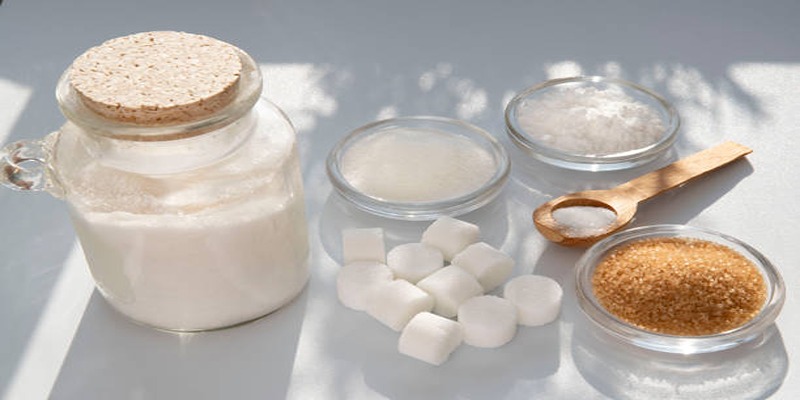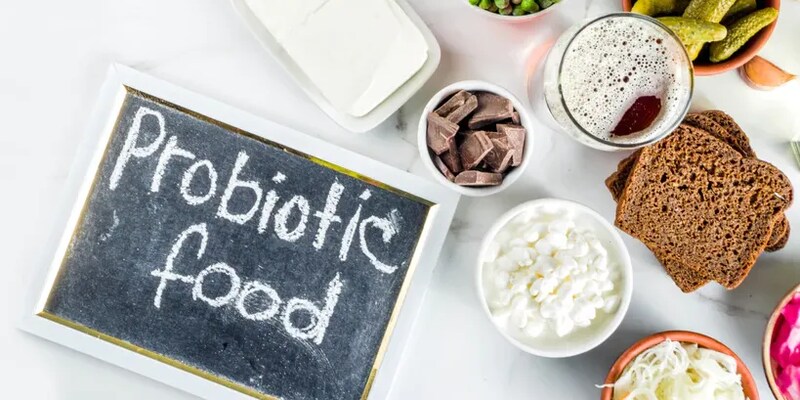Understanding the differences between natural and refined sugars is crucial for making informed dietary choices. Natural sugars are found in whole foods such as fruits, vegetables, and dairy products, providing essential nutrients alongside their sweetness. In contrast, refined sugars are processed and added to foods and beverages, often contributing to higher calorie intake without nutritional benefits. These refined sugars can hide in everyday items, from soft drinks to baked goods, significantly impacting our health. As dietary habits continue to be scrutinized, recognizing the distinctions between these sugars can help in managing weight, preventing chronic diseases, and promoting overall well-being. This guide delves into both types, helping you navigate the sugary landscape with knowledge and confidence.
What Are Natural Sugars?

Natural sugars are intrinsic to whole foods, existing alongside fibers, vitamins, minerals, and antioxidants. These sugars, primarily fructose and glucose, are metabolized slowly, providing a steady source of energy without causing rapid blood sugar spikes. For example, fruits like apples and berries contain fructose, while dairy products include lactose, a combination of glucose and galactose.
Consuming natural sugars as part of a balanced diet offers nutritional benefits and aids in better appetite control. These sugars are an essential part of the food's matrix, meaning they come with additional nutrients that support overall health. Incorporating whole fruits and vegetables into your meals ensures you receive not just the sweetness but also valuable nutrients that contribute to a healthy lifestyle.
What Are Refined Sugars?
Refined sugars, also known as added sugars, are extracted from their natural sources and processed to remove all nutrients and fibers. This refining process results in a highly concentrated form of sugar that is often added to foods and beverages for extra sweetness. Refined sugars include table sugar (sucrose), corn syrup, high fructose corn syrup, and other forms of sweeteners such as honey, agave nectar, and maple syrup.
Sources of Natural Sugars
Natural sugars can be found in a variety of whole foods that are integral to a healthy diet. Fruits, vegetables, and dairy products are the primary sources. For instance, fruits such as bananas, mangoes, and grapes are rich in fructose, while vegetables like carrots and sweet potatoes contain glucose.
Dairy products, including milk and yogurt, offer lactose, a sugar that provides energy and aids in the absorption of calcium and other minerals. Additionally, whole grains and nuts contain small amounts of natural sugars along with fiber and essential nutrients. Consuming these natural sources can help maintain energy levels and contribute to overall nutritional well-being.
Health Benefits of Natural Sugars:
- Whole foods containing natural sugars provide a wide range of essential nutrients, including vitamins, minerals, and fiber.
- The presence of natural sugars alongside other nutrients in whole foods supports better blood sugar management and appetite control.
- The fiber in natural sugar sources also promotes proper digestion, which can help maintain gut health.
- Natural sugars found in fruits and vegetables are rich in antioxidants that protect cells from damage caused by free radicals.
- Consuming natural sugars as part of a balanced diet can contribute to improved overall health and well-being.
Health Concerns Surrounding Refined Sugars:
- Refined sugars are often added to processed foods and beverages, contributing to a higher calorie intake without providing essential nutrients.
- Consuming too many refined sugars can lead to weight gain and increase the risk of chronic diseases such as obesity, type 2 diabetes, and heart disease.
- Refined sugars are known to cause blood sugar spikes, which can result in energy crashes and cravings for more sugary foods.
- The refining process removes all other nutrients and fibers from the source, making refined sugars a source of empty calories that offer little nutritional value.
- Regular consumption of refined sugars can also contribute to dental issues such as tooth decay and cavities.
How to Make Healthier Choices:
- Choose whole foods that contain natural sugars, such as fruits, vegetables, and dairy products, over processed foods with added sugars.
- When purchasing packaged items, check the ingredient list for any added sugars and opt for products with little or no added sugar.
- Be mindful of portion sizes when consuming foods and drinks high in refined sugars.
- Experiment with alternative sweeteners like stevia or monk fruit extract instead of using refined sugar in recipes or beverages.
- Incorporate more whole grains, nuts, and seeds into your diet to satisfy cravings for sweetness while also providing essential nutrients and fiber.
How to Identify Hidden Sugars in Foods:
Refined sugars can often be hidden in foods under various names, making it essential to check labels carefully. Some common names for added sugars include sucrose, glucose, high fructose corn syrup, dextrose, maltose, and more. Even products marketed as "natural" or "healthy" can contain significant amounts of added sugars. Items like flavored yogurt, salad dressings, granola bars, and even bread can have added sugars. To identify hidden sugars, look at both the nutrition facts and the ingredient list. If any form of sugar is listed among the first few ingredients, the product likely contains a high amount of added sugars, which can negatively impact health.
Tips for Reducing Refined Sugar Intake:

- Start by gradually reducing the amount of added sugars in your diet to allow your taste buds to adjust.
- Swap out sugary drinks for unsweetened options like water or herbal tea.
- Replace processed snacks with whole foods like fruits, vegetables, and nuts that provide natural sweetness and nutrients.
- Be mindful when eating out, as many restaurant dishes can have hidden added sugars.
- Experiment with healthier alternatives in recipes, such as using mashed bananas or applesauce instead of refined sugar in baked goods.
- Keep track of your daily sugar intake and try to stay within recommended guidelines (no more than 10% of daily calories should come from added sugars).
Conclusion
Natural sugars found in whole foods provide more than just sweetness - they also offer valuable nutrients that contribute to overall health. While refined sugars may add flavor to processed foods, they lack essential nutrients and can have negative effects on health when consumed in excess. By being aware of hidden sugars, making conscious choices, and incorporating more whole foods into our diets, we can reduce refined sugar intake and promote a healthier lifestyle. So let's make an effort to choose natural sources of sugar over refined ones for a happier and healthier life!







